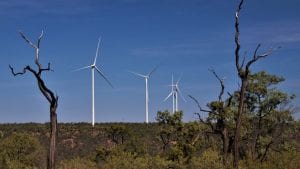
LIMA: Well, here’s (yet another) backflip: Australia has decided, in the face of enormous international criticism, to give $200 million over four years to the Green Climate Fund. Only last week, Foreign Minister Julie Bishop was stating categorically that there would be no contribution to the GCF. (Even Mongolia and Monaco made pledges.)
Australian NGOs, such as Oxfam and The Climate Institute, have given a tepid welcome to the pledge. As well they might: according to the Lowy Institute, the Australian aid budget is being cut by 10 per cent in real terms over the next two years. It’s hard not to see today’s commitment as a budgetary sleight-of-hand, hastily cobbled together to give Australia something—anything!—constructive to add to the process.
Of course, the Prime Minister’s decision to announce the GCF about-turn ahead of his deputy’s chance to do so at the COP itself fuels suspicion that Abbott fears Bishop covets his office. He seems determined to ensure she gets no kudos for the government’s sudden change of heart, especially given she is the only federal politician to have scored positively in a recent Essential poll.
So, better late than never? The US$166 million (in current terms) will almost certainly be welcomed with diplomatic smiles and pats on the back, but is it sufficient to deflect international attention away from Australia’s climate policy regressivism?
After all, Australia is still the only country to have torn up a carbon price, not to mention related programs, and that after a single year of operation. In opposition and now in government, the Coalition’s mantra was that the world was moving swiftly away from carbon pricing. How sustainable will that spin be post-COP20, even with the Murdoch media on side?
No doubt the World Bank President, Dr Jim Yong Kim, felt very confident in his call yesterday for carbon pricing in every country because there are already 39 such schemes—taxes, regulations, or markets—in operation or in the pipeline. Together they cover 12 per cent of the world’s emissions.
Yet, even as the World Bank called for a phase-out of fossil fuel subsidies, the Abbott Government introduced a new tax break for resource exploration last week. The rationale? Investment in minerals exploration is in decline, plunging to its lowest level in a decade.
Yet, Australia ploughs on. Queensland, according to The Australia Institute, has spent $8 billion subsidizing coal exploration over the last six years. And if coal mining goes ahead in the Galilee Basin it will become the single largest source of thermal coal anywhere on the planet. As the Guardian’s Graham Readfearn revealed earlier in the year, emissions from this complex of mines would dwarf Australia’s national emissions. Galilee coal represents 7 per cent of the global carbon budget and, were it to be released into the atmosphere, would negate much of what is trying be achieved here in Lima and in the lead-up to Paris next year.
According to a report released earlier this year by the Overseas Development Institute and Oil Change International, the G20 countries alone spend US$88 billion each year in tax breaks and other support to companies to explore coal and other fossil fuels—more than double the investment by the companies themselves.
Today also saw the arrival of the UN Secretary–General, Ban Ki-moon. Ban urged governments to deliver a ‘balanced, well-structured, and coherent’ draft of a new global climate agreement, for sign-off in Paris next year. He also called on countries to declare, by the first quarter of 2015, what their contribution to reducing emissions would be, and to determine how financial assistance to developing countries will be ratcheted to US$100 billion a year by 2020. Even then, a recent report by the UN Environment Program says the real cost of adaptation may be four or five times that figure.
Ban said the poor and those in vulnerable parts of the world, such as the small islands of the Pacific, needed a strong commitment from the wealthy to enable them to deal with a rapidly changing climate.
Climate change, the Secretary–General said, was inseparable from economic development, and he warned that to divorce the two was to risk undermining progress.
‘The planet has a fever. We can no longer burn our way to prosperity,” Ban said. ‘We have a responsibility to future generations. We simply must find cleaner ways of powering progress.’
But Australia is deaf to the Secretary-General’s call.
Not to suggest that other countries are saintly, but amongst delegates at COP20, dismay and disbelief are widespread. Australia’s position and disposition is regarded as something bizarre, met with furrowed brows and shaking heads. The Climate Action Network has, thus far, bestowed four ‘Fossil of the Day’ awards on our wide brown land. The latest is for the Australian delegation’s baulk at setting a long-term limit on the rise in global average temperature.
Given that his outspoken denial of the problem, Trade Minister Andrew Robb’s presence at the climate talks must be further cause for embarrassment. Precisely what he is doing at the COP is still anyone’s guess. Unsurprisingly, he is meeting with the Peruvian Minister for Energy and Mines, and will no doubt use the opportunity to promote Australian resources, including coal, to the Peruvians and others here. Representatives of the Big Australian itself, BHP, have been seen in the corners of the conference village at the Pentagonito – the “little Pentagon” military base in Lima’s wealthy San Borja district where COP20 is being held.
Bishop’s insistence that she come to COP20, Abbott’s dispatching Robb, the political debacle that the G20 was for the Prime Minister, and the US–China deal. Doubtless it has dawned on at least some in Federal Cabinet that, contrary to their own propaganda (some of which they seem to genuinely believe), something is happening in Lima—something really big. And that something could, in the not-too-distant future, leave Australia landscape littered with stranded assets that were once coalmines and ports.








